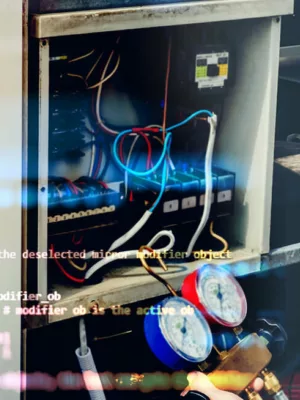
In the realm of Heating, Ventilation, and Air Conditioning (HVAC), effective management of contracts and service agreements is a key to success. Today's HVAC contractors are harnessing the power of CRM (Customer Relationship Management) software to transform this challenge into an opportunity. With CRM, these businesses are achieving new levels of customer satisfaction and operational efficiency, setting a standard in the industry for excellence in service and management. This blog post reveals how CRM software is currently shaping the HVAC industry, enhancing both customer relationships and business growth.
Unique challenges in the HVAC industry
The HVAC sector, critical in ensuring comfortable and safe indoor environments, faces several challenges:
- Seasonal demand: Effective scheduling and smart allocation of resources are key to adapting to the fluctuating needs for HVAC services throughout the year.
- Regulatory compliance: Detailed record-keeping and diligent maintenance are necessary to adhere to safety regulations governing HVAC systems.
- Customer interaction: Establishing robust customer relationships is fundamental to achieving success in HVAC services.
- Service agreements: Dependence on service agreements for regular maintenance highlights the importance of skilled contract management.
The impact of CRM software on HVAC contract management
Specialized CRM software for the HVAC industry equips contractors with tools to manage contracts, service agreements, and customer relationships efficiently. Here's how CRM software is beneficial:
- Centralized contract management: CRM acts as a one-stop hub for all customer contracts and service agreements, simplifying access to important details like service schedules and renewal dates.
- Automated notifications: CRM systems automate contract renewal notifications, ensuring no missed opportunities for extending service agreements.
- Scheduling and dispatch: Many CRM solutions integrate scheduling and dispatch features, optimizing assignments and enhancing service efficiency.
- Customer communication: CRM tools enable proactive communication with customers, offering appointment reminders and service updates.
- Mobile access: Field technicians can access contract details, service history, and customer data on-site via CRM mobile applications, leading to improved service quality.
- Reporting and analytics: These insights assist HVAC companies in making data-driven business decisions.

Best practices for managing HVAC contracts with CRM
- Data accuracy: Ensure all contract and customer information in the CRM system is accurate and updated.
- Training: Equip staff with the necessary training to maximize the benefits of the CRM software.
- Integration: Connect the CRM system with other software solutions like accounting or inventory management for streamlined operations.
- Regular audits: Conduct periodic reviews of contract and service agreement data to identify upselling or contract renewal opportunities.
Wrap up
In the competitive HVAC sector, the role of CRM software is increasingly significant for contractors. It facilitates smoother contract management, enhances customer interactions, and provides insightful data, making it a fundamental tool for HVAC businesses focused on managing contracts with greater efficacy, improving service standards, and achieving success in a challenging market. Learn more about how our CRM and ERP application solutions can help streamline your HVAC business operations, contributing to improved efficiency and customer engagement.
Other blog posts on a subject:
- Optimizing HVAC business with CRM systems
- Protecting Customer Information; The Importance of Data Security and Compliance, in HVAC CRM
- Automating Customer Communication with CRM: Appointment Reminders and Service Updates
- Understanding Inventory Management Systems: Enhancing Efficiency and Profitability







